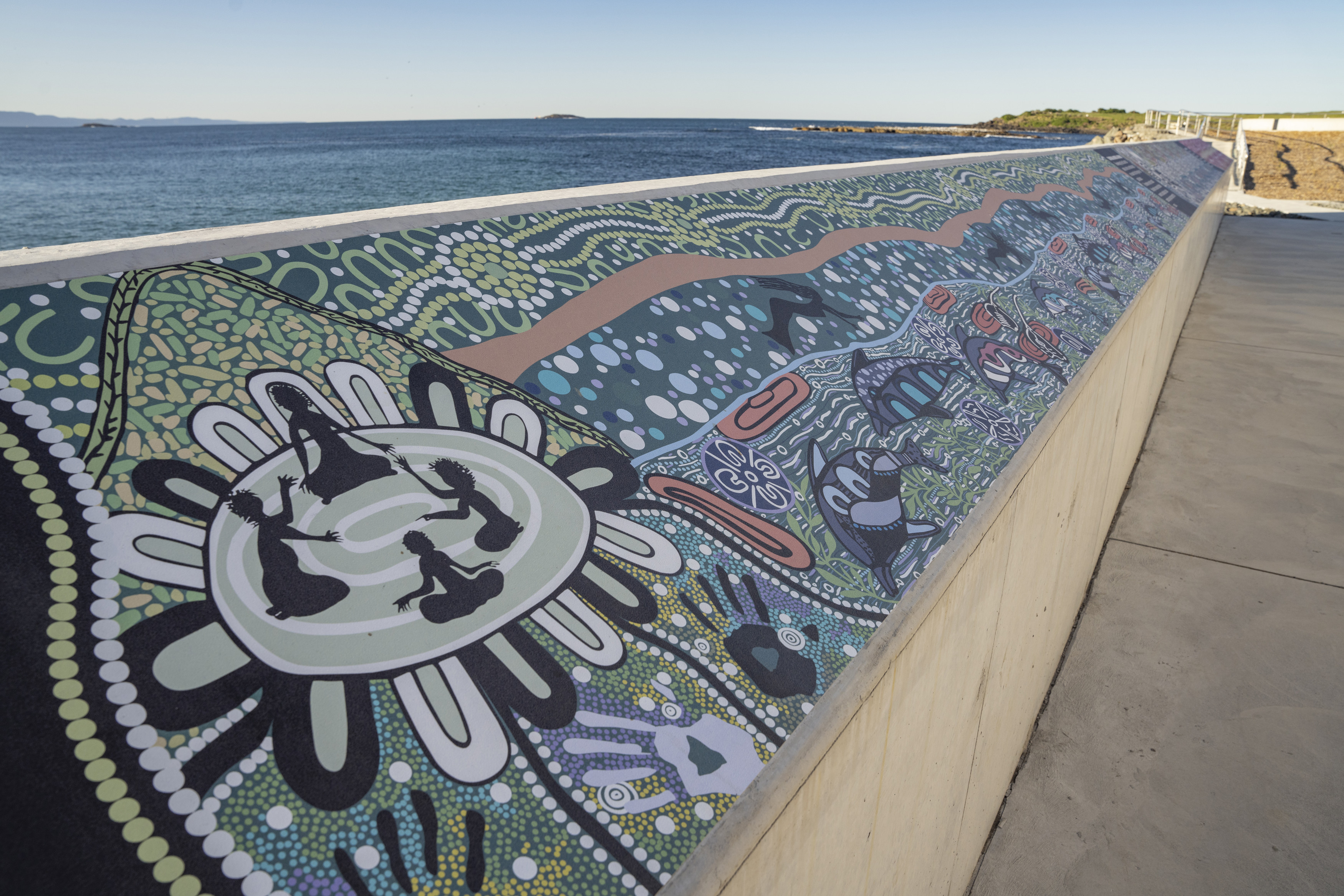Our commitment to engage with Aboriginal people about floodplain planning and management
The department acknowledges that we need to continue improving how we engage with Aboriginal people, communities, and organisations. Some of our key learnings based on feedback are:
- Aboriginal people should be involved early in planning and decision-making to build a shared understanding and incorporate Indigenous cultural knowledge.
- consultation should be culturally appropriate and be held on Country where possible.
- consultation should engage local knowledge holders, as well as peak bodies and representative groups.
- acknowledgement and protection of Aboriginal cultural assets, values and uses should be continually improved in floodplain management plans.
The department is committed to bringing these learnings into floodplain planning and management in NSW.
To find out more about the department’s commitment to improving Aboriginal engagement please see our Priority 2 (NSW Water Strategy) page.
Aboriginal cultural practices connected with floodplain harvesting
The return of water to floodplains through licensing of floodplain harvesting, is expected to have several benefits for Aboriginal communities across the northern basin. This includes the continuation of Aboriginal cultural values and practices connected with flooding across floodplains. To help realise potential benefits, the department seeks to understand the considerations and perspectives of Aboriginal peoples within the region.
A cultural value is defined as sites, objects, landscapes, resources and beliefs that are important to Aboriginal people as part of their continuing culture.
Floodplain management plans and consultation
On-Country consultation workshops with Aboriginal communities and organisations were held in the northern Basin between 2020-2023. The purpose of the workshops was to seek feedback from, and better understand the perspectives of Aboriginal people relating to how water and structures on floodplains are managed.
Feedback from these sessions highlighted potential benefits of floodplain management reform, including:
- a healthier Country and landscape
- rejuvenation and protection of cultural sites
- increased opportunities to carry out traditional practices and cultural obligations to the land
- increased opportunity for knowledge sharing and cultural continuation
- increased opportunity for involvement and collaboration in floodplain management.
A desire for improvement in the following four areas was also raised during consultation:
- Equity – greater equality and recognition for Aboriginal people and values on the floodplain, as appears to be afforded to agricultural and economic development.
- Cultural perspective – better cultural understanding and respect of the floodplain.
- Cultural protection – better protection of cultural assets and values on the floodplain.
- Aboriginal involvement – greater involvement of Aboriginal people and individuals in planning and management of the floodplain.
Report
For a more detailed summary of what we heard during the consultation workshops, read the Cultural Considerations report – Floodplain Management Reforms for the northern Murray–Darling
Download the cultural considerations report (PDF. 715KB)Previous consultation
2020–2021 consultation
In 2020, the department and Northern Basin Aboriginal Nations (NBAN) co-designed a culturally sensitive approach to engagement on the benefits and impacts of floodplain harvesting reform from an Aboriginal viewpoint.
Between October 2020 and May 2021, NBAN led a series of Aboriginal consultation workshops in the Border Rivers and Gwydir valleys. Feedback from these sessions has been summarised in the Cultural Considerations of Floodplain Harvesting for the Gwydir Valley and Border Rivers report (PDF, 524.87 KB).
2014–2018 consultation
Between April 2014 and August 2018, the department consulted with Aboriginal peoples on a valley-by-valley basis to inform development of the floodplain management plans for the Border Rivers, Gwydir, Macquarie, Barwon-Darling and Namoi valleys.
In each valley, face-to-face meetings were held with local Aboriginal people and organisations to identify flood-dependent Aboriginal cultural assets, values and uses.
This consultation was used to:
- explain why the department was preparing new plans and how they relate to Aboriginal cultural assets, values and uses
- inform development of floodplain management plans under the Water Management Act 2000
- seek feedback on the overall concepts of the draft plans, including how Aboriginal cultural assets, values and uses would be considered in management zones, rules and assessment criteria
- collect information about Aboriginal cultural assets, values and uses to inform the mapping of the draft management zones and the rules for flood works in each of these zones.
Read the report on Cultural Considerations of Floodplain Harvesting for the Gwydir Valley and Border Rivers (PDF, 524.87 KB)
Assistance
If you require assistance in reading these documents, please contact 1300 081 047 or water.enquiries@dpie.nsw.gov.au
